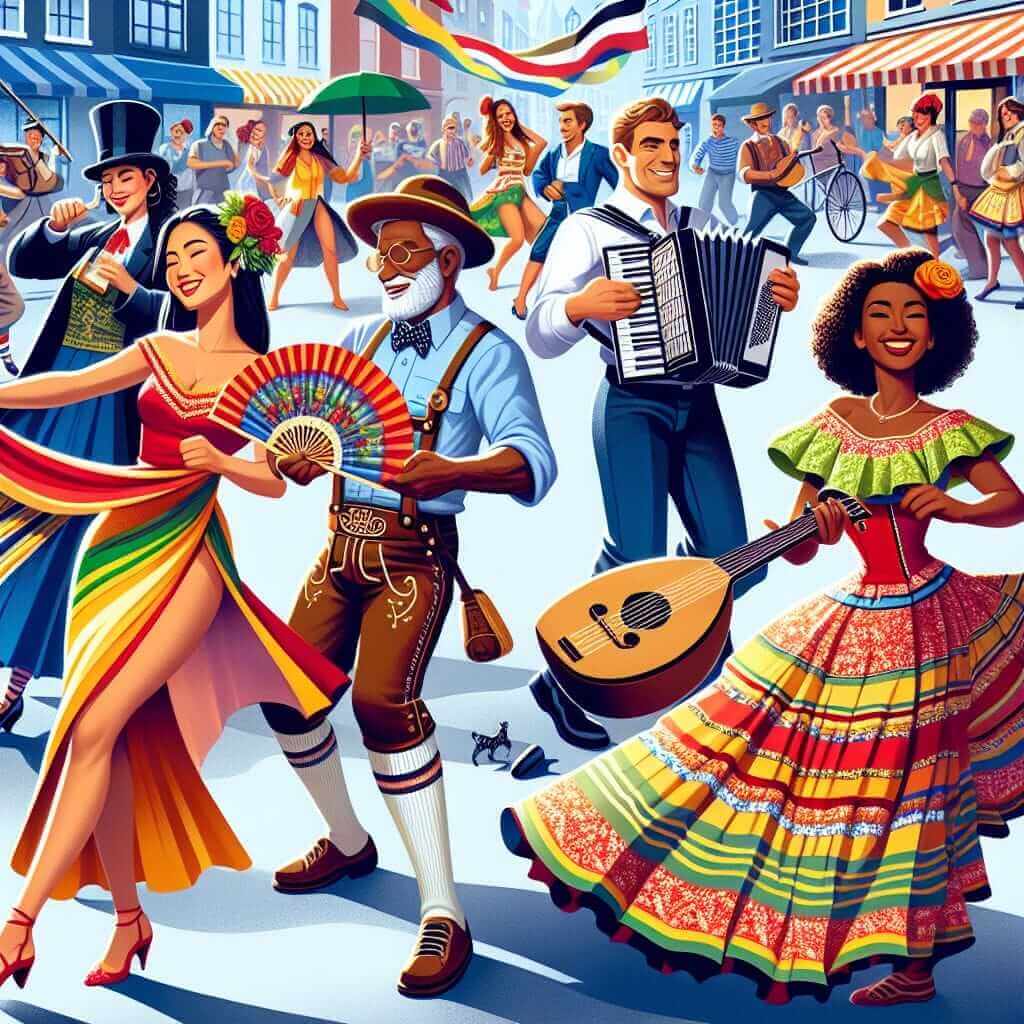The interplay between multiculturalism and national identity is a hot-button issue in today’s increasingly globalized world. It’s a topic frequently appearing in IELTS Writing Task 2, requiring test-takers to showcase their ability to craft well-structured and insightful essays.
Here are a few examples of how this topic might be presented in the IELTS exam:
Example 1:
Some people believe that multiculturalism enriches a nation’s identity, while others argue that it undermines national unity. Discuss both views and give your own opinion.
Example 2:
To what extent do you agree or disagree that immigration policies should prioritize maintaining a strong national identity over promoting cultural diversity?
Example 3:
In an increasingly globalized world, how can countries balance the preservation of their cultural heritage with the integration of diverse cultures?
Sample Essay: Analyzing the Impact of Multiculturalism
Let’s delve into a sample essay addressing the first example prompt:
Prompt: Some people believe that multiculturalism enriches a nation’s identity, while others argue that it undermines national unity. Discuss both views and give your own opinion.
Essay:
The relationship between multiculturalism and national identity is a complex and often debated topic. While some argue that the influx of diverse cultures enhances a nation’s identity, others contend that it erodes national unity and cohesion. This essay will examine both perspectives before presenting a balanced viewpoint.
Proponents of multiculturalism posit that the blending of traditions, customs, and values from various cultural backgrounds enriches the tapestry of national identity. They argue that exposure to different perspectives fosters tolerance, understanding, and a vibrant cultural landscape. For instance, the culinary scene in cosmopolitan cities like London and New York, a melting pot of cuisines from around the globe, is often cited as a testament to the positive impact of multiculturalism on national identity. Such cultural fusion, they argue, makes a nation more dynamic and interesting.
Conversely, critics of multiculturalism express concerns that it can dilute a nation’s shared values and traditions, leading to societal fragmentation. They fear that the emphasis on cultural differences may overshadow common ground, potentially leading to social tensions and a weakening of national unity. For example, some argue that parallel societies might emerge within a nation, with different cultural groups living side-by-side but not fully integrating, thereby hindering the development of a cohesive national identity.
In my view, while unchecked multiculturalism might pose challenges, a balanced approach that celebrates diversity while upholding core national values can be mutually beneficial. Fostering an environment of mutual respect and understanding, where immigrants are encouraged to integrate while preserving their cultural heritage, is key. This allows for the creation of a richer, more inclusive national identity that embraces its multifaceted nature.
Ultimately, the success of multiculturalism hinges on a nation’s ability to strike a delicate balance – celebrating diversity while nurturing a shared sense of belonging that transcends cultural differences.
(Word count: 285 words)

Writing Tips:
- Structure: Follow a clear structure (introduction, body paragraphs discussing both sides, and a conclusion with your opinion).
- Vocabulary: Use topic-specific vocabulary (e.g., integration, assimilation, cultural diversity, national unity).
- Examples: Support your arguments with relevant examples to illustrate your points effectively.
- Grammar: Pay close attention to grammar and punctuation to ensure clarity and fluency.
Vocabulary Builder:
- Multiculturalism (noun) /ˌmʌltiˈkʌltʃərəlɪzəm/: The presence of, or support for the presence of, several distinct cultural or ethnic groups within a society.
- National identity (noun) /ˈnæʃənəl aɪˈdɛntɪti/: A sense of a nation as a cohesive whole, as represented by distinctive traditions, culture, and language.
- Integration (noun) /ˌɪntɪˈɡreɪʃən/: The process of combining two or more things so that they work together.
- Assimilation (noun) /əˌsɪmɪˈleɪʃən/: The process by which a person or a group’s language and/or culture come to resemble those of another group.
- Cohesion (noun) /koʊˈhiːʒən/: The state of being bound together; unity.
- Fragmentation (noun) /ˌfræɡmənˈteɪʃən/: The process or state of breaking or being broken into small or separate parts.
- Cosmopolitan (adjective) /ˌkɒzməˈpɒlɪtən/: Including or containing people from many different countries.
- Dilute (verb) /daɪˈluːt/: To make something weaker or less effective.
- Parallel societies (noun) /ˈpærəlɛl səˈsaɪətiz/: Groups within a larger society that live separately from each other and have different cultural norms and values.
- Transcend (verb) /trænˈsɛnd/: To go beyond the limits of something.
Conclusion:
Mastering the art of writing about complex themes like the influence of multiculturalism on national identity is crucial for IELTS success. By understanding both sides of the argument, using appropriate vocabulary, and presenting well-structured essays, you’ll be well-equipped to achieve your desired band score. Keep practicing, and good luck!